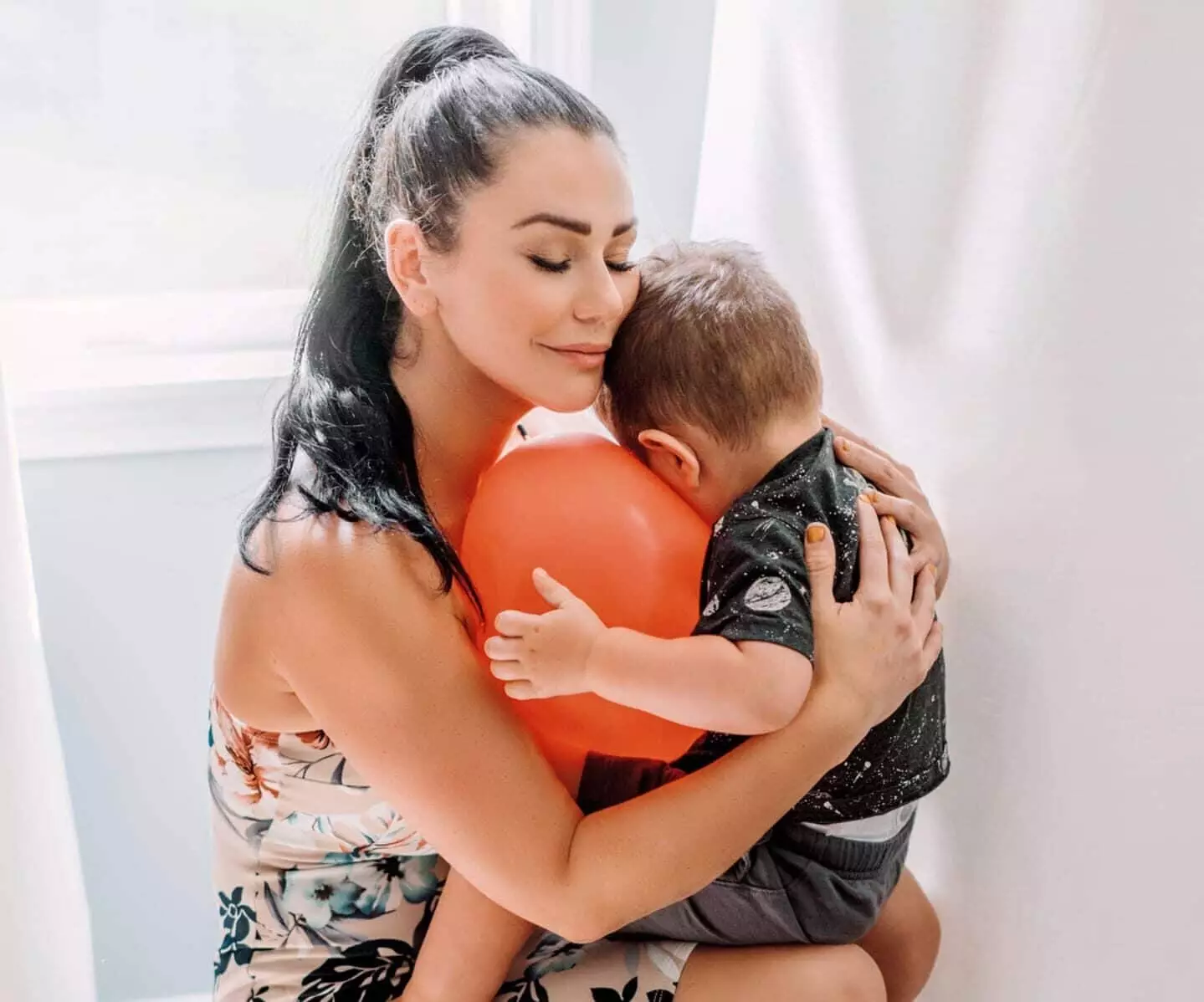In the world of reality television, the lives of show participants often seem perfect, but behind the glitz and glamor, real struggles are often hidden. Jenni “JWoww” Farley, well-known for her role in the iconic Jersey Shore series, recently opened up during the premiere of “Jersey Shore: Family Vacation.” In a heartfelt moment, she shared her experience as a mother coping with her 2-year-old son Greyson’s speech delay. This discussion not only highlights personal struggles but sheds light on a common issue many parents face, sparking a conversation that many may find relatable.
Facing the Challenge of Speech Delays
Jenni’s candid remarks about Greyson’s speech development reveal her vulnerability as a parent. During the episode, she expressed concern over her son’s delayed speech, mentioning that he has started therapy to address these challenges. This act of vulnerability resonates especially well with a broader audience, as many parents experience similar uncertainties regarding their children’s developmental milestones. Research shows that around 15% of toddlers experience speech delays, making Jenni’s experience not an outlier but rather an aspect of parenting that can touch countless families.
As a mother of two, including Greyson’s older sister Meilani, 4, Jenni’s emotional struggles reflect a deeply ingrained desire among parents for their children to meet societal standards. Many parents grapple with feelings of inadequacy or disappointment when their child doesn’t reach developmental milestones as expected. Jenni’s acknowledgment of these feelings illustrates a key aspect of modern parenting; the pressure to achieve a perceived notion of perfection can be overwhelming.
Following the airing of the episode, Jenni’s outreach to fellow parents via social media garnered significant attention. She expressed gratitude for the support she received after sharing her struggles, noting how the understanding from others helped alleviate her feelings of isolation. This response speaks volumes about the importance of community among parents, especially those who face similar challenges.
Social media has become a platform for sharing personal narratives, allowing individuals like Jenni to connect with others going through parallel experiences. In an age where vulnerability can foster connection, it is commendable that she chose to share her journey. This openness not only serves her own healing process but also provides reassurance to others grappling with the same issues. In her Instagram post, where she shared Greyson saying “mama,” she illustrated the gradual progress that can come from interventions, reinforcing the idea that while challenges exist, they can be overcome.
Understanding Speech Delays: The Expert Perspective
In the wake of Jenni’s revelations, it’s essential to provide some context on speech delays from a medical standpoint. Speech delays are often a benign issue, typically resolved with appropriate interventions. The Centers for Disease Control and Prevention (CDC) outlines critical developmental milestones, including the expectation that by age two children should be using two-word phrases. When this is not the case, it’s recommended to consult a pediatrician — not necessarily because there is a significant problem, but to ensure that any underlying issues are addressed quickly.
Experts like Dr. Jay Hoecker from the Mayo Clinic emphasize the importance of early treatment, suggesting that pediatricians evaluate potential reasons for speech delays, which may range from hearing issues to various developmental disorders. A proactive approach can significantly improve outcomes, allowing children like Greyson to catch up to their peers as their development progresses.
Research indicates that many children who face speech delays will eventually catch up, especially with early intervention. Studies reveal that a significant percentage of late talkers regain ground by their school years. Jenni’s dedication to her son’s therapy, dietary changes, and commitment to sharing their journey reinforces the idea that every child is unique and that support systems, whether through professional help or community engagement, are vital.
In essence, Jenni “JWoww” Farley’s candidness about her son’s speech delay not only humanizes her reality television persona but also helps dismantle the stigma surrounding developmental delays. By sharing her story, she exemplifies the idea that vulnerability can lead to strength, community support, and ultimately, progress. Jenni is a role model for modern parenting — embracing imperfection, seeking help, and advocating for the well-being of her child in a challenging yet hopeful journey.

